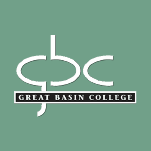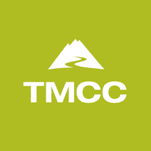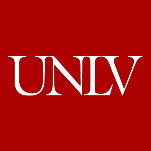Dear Colleagues,
As Black History Month draws to a close, I have been reflecting on the recent passing of Katherine G. Johnson, NASA’s famed mathematician.
African Americans have been a part of every great movement in American history, despite not always being given a voice. As an African American woman, Ms. Johnson refused to be limited by society’s expectations of her race and gender in the 1950s and 1960s, and became an essential part of one of humankind’s most wondrous achievements: Putting man in space and on the moon.
Her genius in math was undeniable and not easily duplicated. When John Glenn, America’s first man in space, wouldn’t trust a computer to calculate and verify the travel trajectories, he trusted Katherine Johnson to get the numbers right.
But it’s her determination to succeed that we should all try to emulate.
The third strategic goal of the Nevada System of Higher Education-Closing the Achievement Gap-was adopted by the Board of Regents to eliminate equity gaps in enrollment, retention, and graduation rates for Nevada’s African American students and other traditionally underrepresented minority student populations. It is not enough that we merely increase the number of minority and underrepresented students at our institutions. Too many of our African American students, in particular, have not succeeded at the same rate as other student populations.
As a system, we must show the same determination to succeed as Ms. Johnson when working to help this student population succeed. Programs like Truckee Meadows Community College’s Men of Color program and Western Nevada College’s Continuing the Legacy of African American Student Success (or C.L.A.A.S.S.) program are steps in the right direction.
The theme of Black History Month this year is “African Americans and the Vote.” Aligned with this theme, NSHE must continue to educate generations of African American students who are committed to the development of ideas, strategies, policies, and resources that will forever change the nation-and the world-for the better. We must refresh our commitment to prepare our African American students for principled citizenship in a democratic society that is rapidly becoming more pluralistic.
The Board of Regents have adopted the policies and our institutions have the tools in place to get the job done.
It is up to us as administrators, faculty, and staff to get all of the numbers right.
CORONAVIRUS or COVID-19
Along with Board of Regents Chair Jason Geddes, Vice Chair Dr. Mark Doubrava, and our institution presidents, I am closely monitoring all the latest developments surrounding the novel coronavirus (COVID-19).
It is natural to be concerned, and I want to reassure you NSHE is in regular communication with the Office of the Governor, and our campuses are working with their respective County Health Districts and the Nevada Public Health Lab.
NSHE campuses remain engaged, vigilant, alert, aware, and prepared. The safety of our students, faculty, and staff remain our top priority.
Meanwhile, the Centers for Disease Control and the Nevada Division of Public and Behavioral Health have set up informational websites that can help answer frequently asked questions, such as what are the symptoms, prevention and treatment, and travel restrictions.
We are encouraging the approximately 150,000 members of the NSHE family, including students and faculty, to be mindful of their own health and seek a medical evaluation if they are experiencing any of the known symptoms.
Also, please keep perspective about what is happening, demonstrate empathy to others, and show respect. We must avoid stereotyping or stigmatizing any individuals, ethnicities, or nationalities on our campus communities.
Foster Youth Initiative Gets Boost
The Nevada System of Higher Education and its institutions have won $830,000 in grants from the Walter S. Johnson Foundation to support its Foster Youth Success Initiative.
After awarding NSHE an initial $200,000 one-year grant a year ago, the Foundation will support NSHE with $400,000 in grant funding for two additional years – to coordinate the initiative across its seven degree-granting institutions.
The Foundation also recently approved a $30,000 18-month grant for Truckee Meadows Community College. The majority of TMCC’s grant funding will go toward housing stability and peer mentor support for foster care alumni.
Additionally, the Foundation awarded UNLV a $200,000 two-year grant to launch a campus-based support program for enrolled former foster youth, including a new coordinator position dedicated to serving that student population.
This grant will go a long way in growing this initiative and providing the wrap around support foster care youth need. The support will be aimed at encouraging foster care students in high school to pursue higher education and providing supportive staff and services while they are attending one of our colleges or universities.
Foster youth face significant challenges when it comes to accessing and successfully completing a higher education degree or certificate. Nationally, less than 50 percent of foster youth graduate from high school and about 3 percent graduate from a four-year college by the age of 26, according to the National Foster Youth Institute.
As the initiative grows, NSHE plans to create a statewide learning community, build a comprehensive post-secondary support system for foster youth, and develop effective post-secondary transition strategies that will expand foster youth-serving systems’ capacity to support college-planning activities and create stronger career pathways for foster youth.
UNLV, UNR Achieve National Community Engagement Distinction
UNLV and UNR received the Carnegie Classification for Community Engagement, a recognition achieved by just 119 institutions across the country in the 2020 cycle.
The classification from the Carnegie Foundation for the Advancement of Teaching highlights both universities’ commitment to and demonstration of being community engaged. Universities were evaluated based on their collaboration with their larger communities to enrich scholarship, research, and creative activity, enhance curriculum, teaching and learning, and address critical societal issues.
This recognition highlights our universities’ commitment to creating and building upon reciprocal connections with partners locally, nationally, and internationally. Making connections with our communities is a priority for the state’s higher education institutions so that we can better meet the needs of Nevada.
The announcement comes on the heels of both UNLV and UNR earning R1 “very high research activity” status, a separate distinction also awarded by the Carnegie Foundation in December 2018. R1 is the gold standard for university research classifications, and both institutions joined an elite pool of only 130 universities with the distinction, an effort that was years in the making.
I’m proud of our students, faculty, and administrators, whose work is reflected in this prestigious honor.
UNLV Immigration Clinic Expands Legal Services to CSN
The UNLV Immigration Clinic’s University Legal Services project has expanded to the students, staff and families of CSN.
The project, which serves students, staff and their families, combines outreach to the campus community, direct legal services, and problem-solving to overcome common issues facing immigrant students and their families.
The project also assists U.S. citizens seeking legal assistance who wish to sponsor a relative so that families can stay together. Additionally, it helps legal residents apply for citizenship, defends families threatened with separation through deportation, and provides assistance with Deferred Action for Childhood Arrivals (DACA) paperwork.
The importance of the work being done by Prof. Kagan and his students cannot be understated. NSHE must continue to provide opportunities and support for all of our students and staff no matter their immigration status.
I am proud this program has expanded to help an even larger group of people.
Chancellor and President Searches
As you know NSHE and the Board of Regents are searching for the next Chancellor of Nevada’s public higher education system and the next presidents of our two research universities, UNLV and UNR.
Search committees have been formed, search firms have been hired, and we are in the process of receiving applications.
For each vacancy, I will work with the search firms to narrow down applications to a couple of finalists for each position. At that point, the process will become open and the candidates will meet with the institutions and higher education communities, respectively.
For now, here are some important dates:
UNLV Presidential Search:
- Presidential Search Campus Forums: March 23 and 24 – Student Union Ballroom.
- Presidential Search Committee Meeting: March 25, March 26 (if required) – Stan Fulton Ballroom.
- Special Board of Regents’ Meeting: March 26, 1 p.m. – NSHE Administration Office.
The NSHE Chancellor Search:
- Candidate campus forums: April 7 and 8 (north and south).
- Chancellor Search Committee Meeting: April 9.
- Special Board of Regents’ Meeting: April 10, 9 a.m. – NSHE Administration Office.
UNR Presidential Search:
- Presidential Search Campus Forums: April 27 and 28.
- President Search Committee Meeting April 29 (and 30, if needed).
- Special Board of Regents’ Meeting: April 30, 1 p.m.
On the NSHE homepage under NSHE Spotlight you can find links to the Chancellor search and the President searches that will lead to more information.
Sincerely,
Thom Reilly








